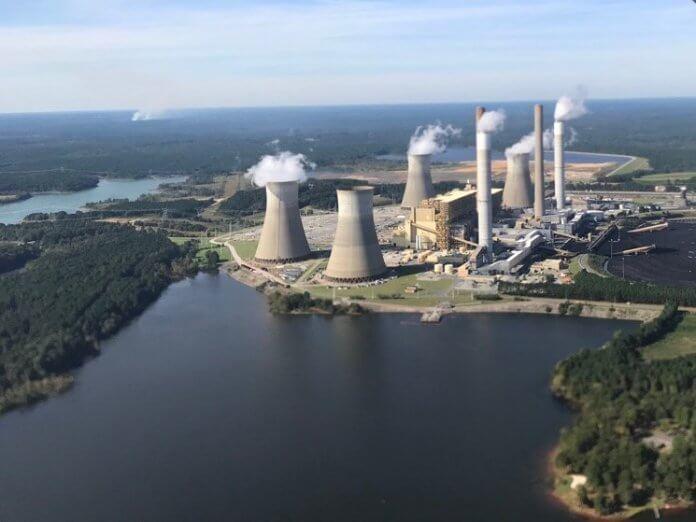
Caption
Georgia Power's coal-fired Plant Scherer contributed to the state's largest electric public utility and its parent company receiving failing grades in new Sierra Club environmental report card.
Credit: Contributed/Altamaha Riverkeeper

